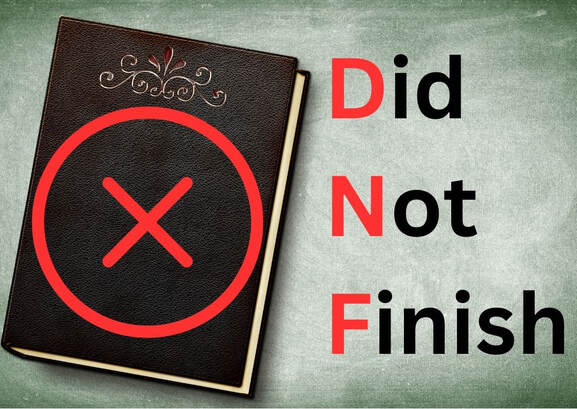|
Image made on Canva 2023 As promised last month, I'm going to share lessons from my first DNF (did not finish) of the year. And just in time for Halloween! Nothing scarier than a book full of promise falling flat on its face, right? I will not be naming the book, but to give context, it was on a list of best indie books of the year it was published, and the premise sounded fantastic. In fact, I'd hoped to use it as a backup comp to one of my novels. It's a self-published adult near future scifi, specifically biopunk. I stopped reading on page 120 out of 438 pages (27%). Rather than forget this and move on, I choose to take away lessons from books I didn't enjoy.
1. Choose Your Editor(s) Wisely If you're going indie, choose your editor or editors wisely. Some folks choose to forgo an editor, and that's your choice. However, if you pay someone to edit in any capacity (developmental, copyedit, line edit, etc.) make sure you choose someone who does a great job. Take advantage of offers to do a sample edit before you commit. If your novel is riddled with typos and plot holes, your readers will not stick around. 2. Don't Info Dump We all know not to do this, but in our own stories we always worry if the reader knows enough. Our beta readers might wonder about specific questions or ideas and we think we have to answer every one of them. However, if you info dump, your readers will know and will not be happy. We all need a certain amount of information to keep reading, but a trickle is better than a firehose to the face. Give enough to avoid confusion, hold back enough that they want more. We all do so much worldbuilding in the background, and it's tempting to shove everything in the novel, but remember the iceberg principle. Show enough worldbuilding to prove to the reader that there is much more below the surface--whether or not you actually wrote more below the surface doesn't matter. The book I DNF'd had such a giant info dump that I ended up skimming it--which is the beginning of the end for me when I read. 3. Avoid "As You Know, Bob" As you know Bob, or maid and butler dialog, is when two characters discuss something they both already know for the benefit of the reader/audience. This is made even worse when it's used to info dump. Your reader will know it's happening, they'll wonder why this conversation is happening, and they'll soon realize it's for them. That ruins the illusion of the reading experience. The book I put down had so much of this that I stopped trusting the author to tell me a good story. Maybe the plot was going somewhere interesting, but how the story is told is most of the battle. 4. Know Your Stuff If you're writing about something technical, let's say gene editing, you better be up on the latest developments. People who love scifi tend to also love science. Especially if you're doing a near-future setting, you need to know what's already happening. Otherwise, you end up sometimes creating an entire plot around science that's out of date, and your plot problems could be solved with science available right now. Your readers will know and will be annoyed. This was my biggest factor in putting down the book I DNF'd this time. It got science wrong that I did in grad school, and it was so wrong it made me cringe reading it. This lesson can be true outside of scifi too, for example people who know horse stuff will complain about horses written poorly in fantasy (there was a whole chapter about horses in Putting the Fact In Fantasy.) So if you include anything in your book that you don't know a lot about, be sure to do your research! Those are the big takeaways from the first book of 2023 that I didn't finish. What are some things that make you put a book down? Have you improved your writing by seeing what doesn't work? Let's discuss in the comments!
0 Comments
Leave a Reply. |
Archives
April 2024
Categories
All
|


 RSS Feed
RSS Feed